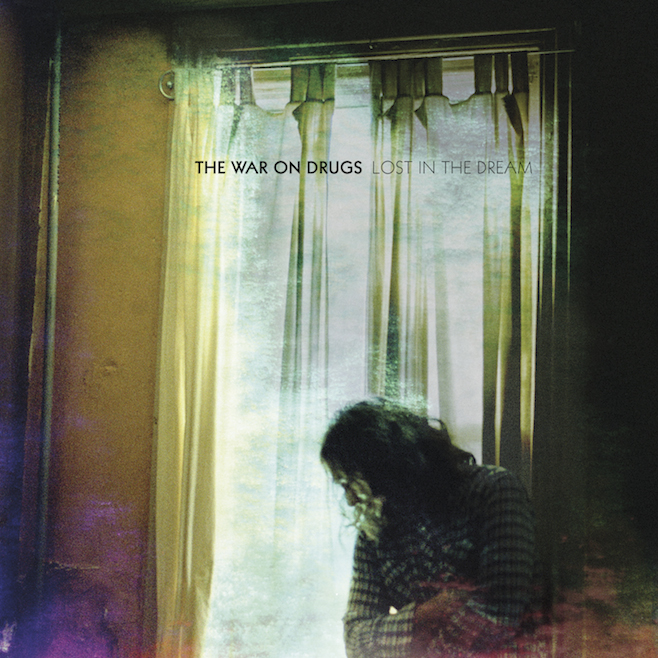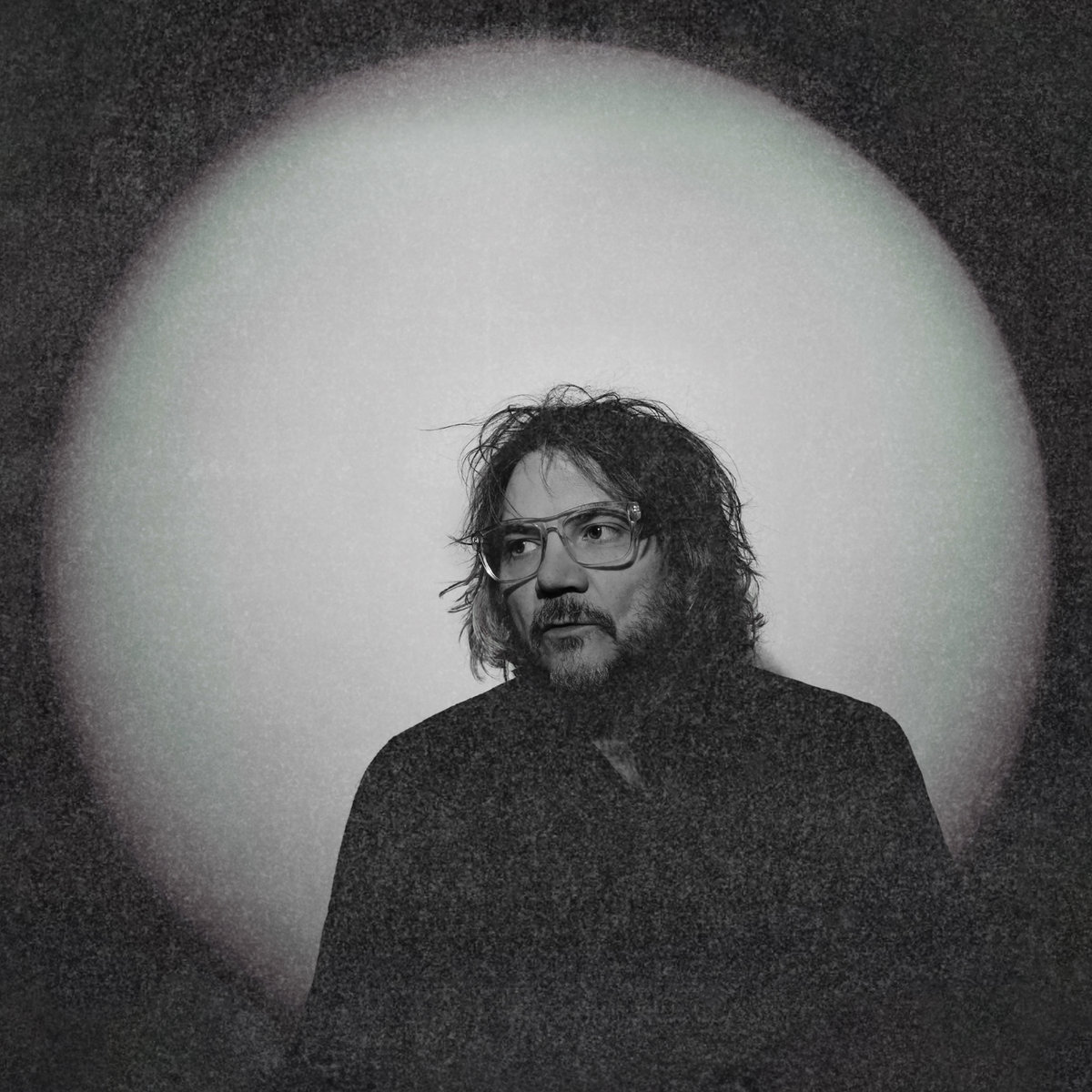One afternoon last week, your Stereogum staff put in serious work on an email thread, attempting to figure out which '80s corporate-rock entity, exactly, the War On Drugs sound most like on their new album Lost In The Dream. Among the staff, various theories include Don Henley, Sting, Dire Straits, Born In The U.S.A.-era Springsteen, '80s-edition Bob Dylan, Richard Marx. Scott Lapatine's final word: "It sounds like if Knopfler had played on Full Moon Fever instead of Mike Campbell." If you've read Ryan Leas's great long feature on the band, you may remember the moment when frontman Adam Granduciel, assembling a song in the studio, mentions that "the snare sounds a little too Wilburys" -- as in, the question of how much Wilburys there should be in the War On Drugs' sound is an open one. All of which is to say that Lost In The Dream is an album full of echoes, and most of those echoes are of a fascinating and awkward moment in rock history, a time when the artists in the middle of the rock stardom road got caught between the sweaty roadhouse gristle of the past and the synthetic sheen of the future. Plenty of classic-rock greats lost their way forever during that moment, but others found a way to turn the moment into magic, at least for the length of a song: "The Boys Of Summer," "I'm On Fire, "Most Of The Time," "Free Fallin'." And it's a weird, fascinating thing that one of the most breathlessly anticipated, critically loved indie rock albums of 2014 is, in so many ways, a throwback to Reagan-era adult-contemporary radio. But if you're having trouble with this latest development, think of it this way: Lost In The Dream uses that moment as the catalyst for some serious inward traveling, for diffuse and fractured meditations. Think of how the Spacemen 3 used the building blocks of, say, Hawkwind and Suicide to make world-swallowing amniotic epics that ultimately became their own gorgeous psycedelic monuments to self. Same deal here, except the War On Drugs use The End Of Innocence instead of Kick Out The Jams.
There are other funny things about Lost In The Dream. For instance, there's a reason why Granduciel is the only member of the band to pose on the cover: He recorded much of the album himself, only bringing in his bandmates on an individual basis to record their own minute parts. In that Ryan Leas piece, Granduciel spells it out in the plainest possible terms: "This wasn't a band record. This was a solo record. I knew that." And yet the album captures that delicate wandering power of people playing music in a room together, each instrument giving its own very particular take on the song's melody, all of it coming together into one gloopy whole. This isn't like a Smashing Pumpkins record, where the entire thing is obviously Billy Corgan's attempt to brightly and clearly replicate the sound he already had in his head. It's an album that wanders and spins and slowly unfurls, the songs never snapping into hard focus. And if Granduciel put all the pieces of these songs together like a jigsaw puzzle, than he must've used a metaphorical blowtorch to melt those jigsaw pieces into one blurry, elusive piece. I honestly can't imagine any of the instrumental elements of this album being played in isolation.
Another funny thing: Granduciel wrote Lost In The Dream while he was going through a period of intense personal anxiety, making drastic changes in his life and coping with the transition to full-blown near-middle-age adulthood, the time when the question of whether this is really what you want to do with your life becomes urgent and concrete and terrifying. And yet it's been a long time since I've heard an album this blissfully chill, this at peace with itself. Actually, now that I think about it, the last album I heard that captured that same majestic languid torpor was probably Wakin On A Pretty Daze, the solo masterpiece from the former War On Drugs member Kurt Vile. Vile released that album deep into spring 2013, and I remember driving around to that album and letting it hypnotize me -- cars behind me honking their horn because I wouldn't get going when the light turned green, too busy being amazed at the way sunlight slanted through branches of new leaves. Lost In The Dream is a very different album from Wakin On A Pretty Daze -- less fractured and personal, more drawn to classic-rock forms, more existentially bummed. And yet it's still the same sort of springtime record. Right now, spring is in sudden first blush in central Virginia, the sun turning what's left of last week's random-ass snowstorm into half-remembered muddy glop, and I couldn't imagine a better soundtrack for the moment. For an album so inspired by anxiety and transition, it sure gives of a sense of deep, lulling contentment.
Lost In The Dream has another thing in common with Wakin On A Pretty Daze: It's fucking great. Or, more specifically, it's an example of an artist whose voice was already strong and well-defined, but who really found a way to hit his stride, to expand on everything that was already good about his music and make a whole universe out of it. This is still very recognizable as the same band who made Slave Ambient three years ago, but they've deepened their sound and expanded their reach. They've become the greatest version of themselves. The rhythm section on Lost In The Dream maintains a basic, steady pulse even when the songs are in full drift mode, and that's what allows everything else to float off into the stratosphere. The guitars are spiraling curlicues, the pianos are ponds of light, and even the brief hints of horn disrupt nothing. On the records that Lost In The Dream echoes, the synths once worked as awkward interlopers, instantly dating the songs and screaming quiet stories about producer desperation. Here's, the synths are a reassuring background drone, blurring the sound of the songs like vaseline on a camera lens. 30 years after those records came out, Granduciel and his collaborators have found a way to use that sound to target the dark, uncanny corners of your mind, to tickle the memories that you didn't realize were still there. It's the sort of stunning, beautiful music that disappears like smoke.
Lost In The Dream is out 3/18 on Secretly Canadian. Stream it below.
(via The Guardian)






